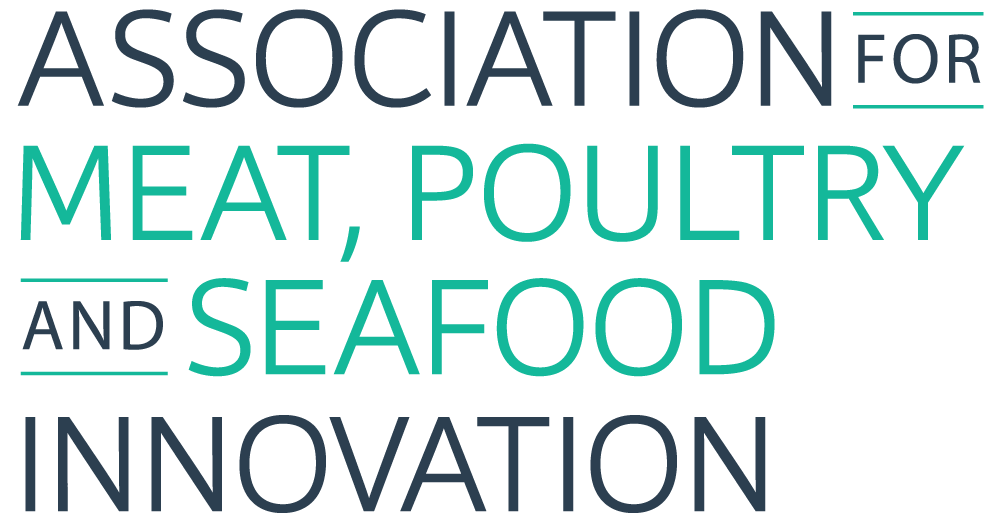AMPS Celebrates Continued Cultivated Meat Industry Momentum with Latest USDA ...
The Association for Meat, Poultry, and Seafood Innovation (AMPS) congratulates Believer on completing the rigorous U.S. federal regulatory pathway, including the recent USDA label approval and facility Grant of Inspection. Now, Believer cultivated chicken, which will be made in North Carolina, is cleared for sale– the 3rd new product fully cleared in the U.S. in […]
read moreAMPS Congratulates Member Company Gourmey and PARIMA on Singapore’s First Eur...
The Association for Meat, Poultry, and Seafood Innovation (AMPS) congratulates our member company Gourmey and its parent company PARIMA on becoming the first-ever European company to receive regulatory approval for cultivated meat, following the Singapore Food Agency’s (SFA) approval of PARIMA’s cultivated chicken. This milestone marks a defining moment for the global cultivated meat industry. […]
read moreAMPS Statement on Believer Meats’ Pre-Market FDA Clearance and Commercial Sca...
The Association for Meat, Poultry, and Seafood Innovation (AMPS) congratulates Believer on successfully completing the rigorous scientific review leading to a U.S. Food and Drug Administration “No Questions” Letter (NQL). Joining 4 other US cultivated meat and seafood companies, this latest NQL confirms the safety of Believer cultivated chicken, the third cultivated chicken to undergo […]
read moreAMPS Congratulates Mission Barns as the World’s First Approved Food Made from...
The Association for Meat, Poultry, and Seafood Innovation (AMPS) congratulates Mission Barns on this major global milestone. After the very thorough scientific FDA pre-market consultation Mission Barns has now completed the USDA review and is cleared for sale– the first cell-cultivated pork product in the world to be fully approved for sale. The rigorous evaluation […]
read moreStatement from AMPS on Vow Becoming First to Secure Cultivated Meat Approval ...
The Association for Meat, Poultry, and Seafood Innovation (AMPS) congratulatesmember company Vow on securing Australia and New Zealand’s first-everregulatory approval for a cultivated meat product. This decision by Food StandardsAustralia New Zealand (FSANZ) is a historic moment in the global advancementof cultivated protein and reflects the growing global momentum for the emergingindustry. Vow’s unique cultivated […]
read moreStatement from AMPS on Wildtype Becoming the First Cultivated Fish Available ...
AMPS congratulates leading member Wildtype, a pioneer in producing American cultivated seafood, on the world’s first approval for cultivated seafood for their cultivated salmon. This will mean 100% American-made, healthy, fresh, sushi-grade seafood grown directly from fish cells will be on menus at restaurants in the U.S., making cultivated proteins available to American consumers from […]
read moreStatement from AMPS Innovation on Florida Court’s Ruling in UPSIDE Foods Case
The Association for Meat, Poultry & Seafood Innovation (AMPS Innovation) welcomes the Florida federal court’s recent decision to allow key aspects of UPSIDE Foods’ lawsuit to proceed. This ruling affirms the importance of judicial scrutiny over state laws that may impede food innovation and consumer choice. While the court previously declined to issue a preliminary […]
read moreAMPS Statement on UK Regulatory Sandbox Participation by Member Companies and...
The Association for Meat, Poultry, and Seafood Innovation (AMPS) congratulates our member companies—BlueNalu, Vow, Gourmey, and Uncommon Bio—as well as Mosa Meat, our partner in the Global Cellular Agriculture Alliance, for their selection to participate in the UK’s groundbreaking regulatory sandbox for cell-cultivated products. This initiative, launched by the UK Food Standards Agency (FSA), represents […]
read moreStatement on Mission Barns Receiving FDA “No Questions” Letter fo...
The Association for Meat, Poultry, and Seafood Innovation (AMPS) congratulates Mission Barns on this important milestone indicating that the very thorough scientific FDA pre-market consultation has been completed. A “no questions” letter from the FDA indicates that the multi-year, extensive review of the novel food’s safety and nutrient composition revealed no concerns that might warrant […]
read more